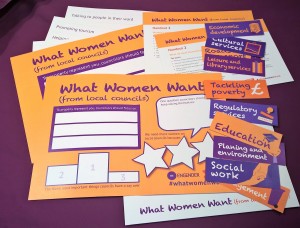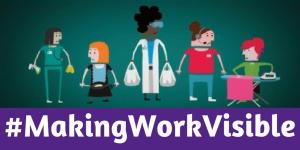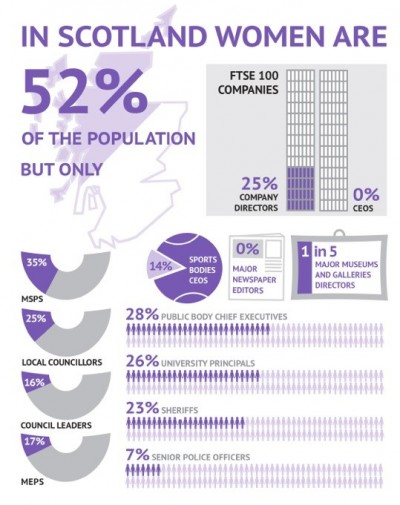Engender blog
All of Engender’s latest news. Reports, reviews, books, articles, and information from across Scotland’s women’s sector.
We would love to hear from other feminists around Scotland. Check out our guidelines for more information on how you can blog for us.
#ScotSocialSecurity and language
Emma Trottier is Engender’s policy manager, and leads our work on social security. Over the coming months she’ll be blogging about the key issues at the heart of the debate about Scotland’s new social security system. Here, she talks about the importance of language.
#MakingWorkVisible as it happened on #IWD2017
A snapshot of the day as we launched #MakingWorkVisible
What do women want from local councils?

That’s the question that we, along with campaign group Women5050 want to answer this spring.
The decisions made by local councils have a significant impact on women’s lives, from allocating spending on education and leisure, to deciding how and where public transport runs. And yet it is in local councils that women’s underrepresentation is clearest – with only 24% of local councillors being women. Of the 1,223 local councillors in Scotland, only four are women from BME communities.
We've created activities and resources which can be used by groups across Scotland to explore what powers local councils have, and how women can have influence them. The workshops will be used to crowd-source 10 questions local councillor elected in May to ask themselves about how they are involving women in their work.
Help us to make women's work visible this International Women's Day

This International Women's Day, Engender will be charting the work done by women across Scotland.
By work, we mean much more than the paid labour which most economists count as 'work'. We know much of the work done by women - caring, looking after households, making sure everyone is supported - is often invisible in society. We also know that without this work, the work done by others would not happen (find out more about these issues here.)
Downloads
 Engender Briefing: Pension Credit Entitlement Changes
From 15 May 2019, new changes will be introduced which will require couples where one partner has reached state pension age and one has not (‘mixed age couples’) to claim universal credit (UC) instead of Pension Credit.
Engender Briefing: Pension Credit Entitlement Changes
From 15 May 2019, new changes will be introduced which will require couples where one partner has reached state pension age and one has not (‘mixed age couples’) to claim universal credit (UC) instead of Pension Credit.
 Engender Parliamentary Briefing: Condemnation of Misogyny, Racism, Harassment and Sexism
Engender welcomes this Scottish Parliament Debate on Condemnation of Misogyny, Racism, Harassment and Sexism and the opportunity to raise awareness of the ways in which women in Scotland’s inequality contributes to gender-based violence.
Engender Parliamentary Briefing: Condemnation of Misogyny, Racism, Harassment and Sexism
Engender welcomes this Scottish Parliament Debate on Condemnation of Misogyny, Racism, Harassment and Sexism and the opportunity to raise awareness of the ways in which women in Scotland’s inequality contributes to gender-based violence.
 Gender Matters in Social Security: Individual Payments of Universal Credit
A paper calling on the Scottish Government to automatically split payments of Universal Credit between couples, once this power is devolved to the Scottish Parliament.
Gender Matters in Social Security: Individual Payments of Universal Credit
A paper calling on the Scottish Government to automatically split payments of Universal Credit between couples, once this power is devolved to the Scottish Parliament.
 Gender Matters Manifesto: Twenty for 2016
This manifesto sets out measures that, with political will, can be taken over the next parliamentary term in pursuit of these goals.
Gender Matters Manifesto: Twenty for 2016
This manifesto sets out measures that, with political will, can be taken over the next parliamentary term in pursuit of these goals.
 Scottish NGO Briefing for UN Special Rapporteur on Violence Against Women
Joint briefing paper for the UN Rapporteur on Violence Against Women.
Scottish NGO Briefing for UN Special Rapporteur on Violence Against Women
Joint briefing paper for the UN Rapporteur on Violence Against Women.

Newsletter
Sign up to receive our newsletter here:
Sign up to our mailing list
Receive key feminist updates direct to your inbox:
